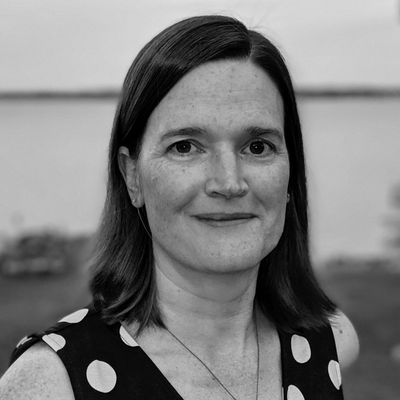During an experiment in which people played a game and won or lost money, neuroscientist Robb Rutledge noticed something strange. “Some people would be in a really good mood, and it wouldn’t actually be closely related to how much money they had,” he says. “That seemed very surprising to me.”
Rutledge, then a grad student studying the neuroscience of decision making at New York University, wondered whether it would be possible to figure out what determines those moods—specifically, how happy a person feels minute-to-minute. He went on to do a postdoc at University College London (UCL), where he ran similar experiments in which volunteers played a game for money, but this time he focused on constructing a model for what factors determined the players’ emotional responses to outcomes. Rather than the amount of their winnings, what mattered most to players’ moods was whether the reward exceeded their expectations.1...
Based on previous work by other researchers, Rutledge suspected the neurotransmitter dopamine was involved in the moods study participants reported. So he and colleagues ran money-winning experiments on people who’d been given a drug that increases dopamine release. Compared with people given a placebo, people who got the drug reported feeling better after small wins. But there was no difference in how the two groups felt after larger wins or losses.2 Dopamine, while important, isn’t the whole story, Rutledge says. There must be other systems in the brain that inform how we feel after these types of events. He and his colleagues are now searching for those systems.
Even if he finds them, Rutledge doesn’t think his findings are likely to improve happiness in healthy people. He’s more interested in helping people with depression. A few years ago, he and colleagues did fMRI scans of people with depression and healthy controls as they performed a task with associated rewards. The team also built a smartphone app, The Great Brain Experiment, and had 1,833 volunteers rate their happiness levels as they played games and earned or lost points. People with depression and controls displayed similar patterns of brain activation and boosts in mood in response to unexpectedly large rewards, a finding that contrasts with previous results.3
Peter Dayan, a computational neuroscientist at UCL, says he was skeptical about the app in the beginning and thought it was unlikely to deliver interesting data. But Rutledge, who started his own lab at the university early last year, was able to construct experiments that surpassed Dayan’s expectations. Dayan now thinks the use of The Great Brain Experiment, which has topped 134,760 users as of October 1, and other apps will turn out to be game changing because of the large quantity of data they can deliver to researchers.
“Robb has really pioneered the use of smartphone technology to do large-scale population studies of psychological processes and link those processes to mental health and mental illness,” says Molly Crockett, a psychology researcher at Yale University. She did a postdoc at UCL at the same time as Rutledge and still collaborates with him to investigate how people form and change impressions of others. “Robb has really inspired the rest of the team in this research.”
References
- R.B. Rutledge et al., “A computational and neural model of momentary subjective well-being,” PNAS, 111:12252–57, 2014. (Cited 150 times)
- R.B. Rutledge et al., “Dopaminergic modulation of decision making and subjective well-being,” J Neurosci, 35:9811–22, 2015. (Cited 68 times)
- R.B. Rutledge et al., “Association of neural and emotional impacts of reward prediction errors with major depression,” JAMA Psychiat, 74:790–97, 2017. (Cited 18 times)
Interested in reading more?







